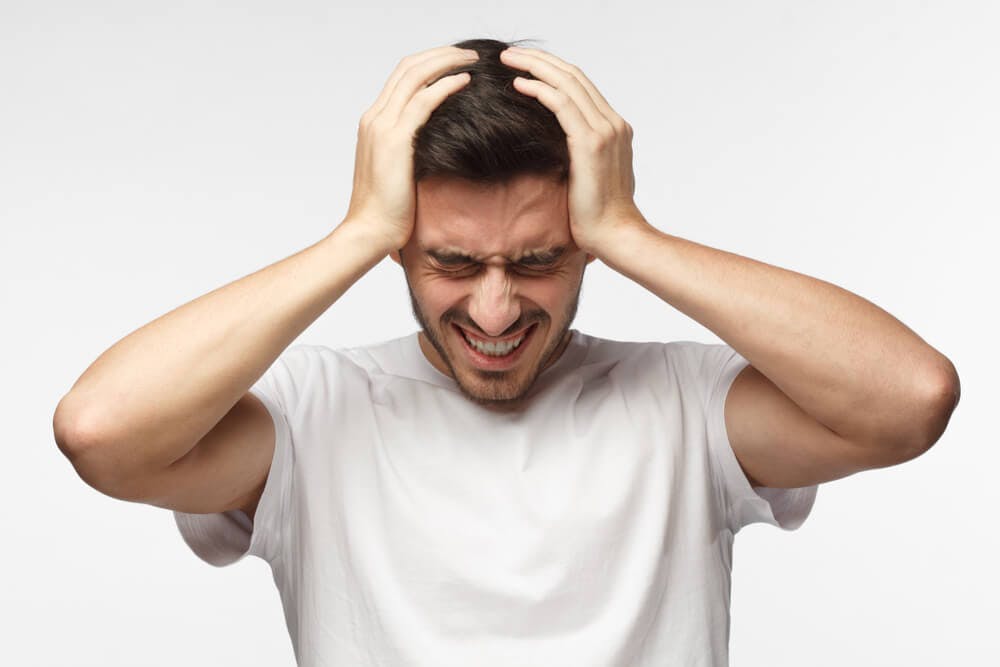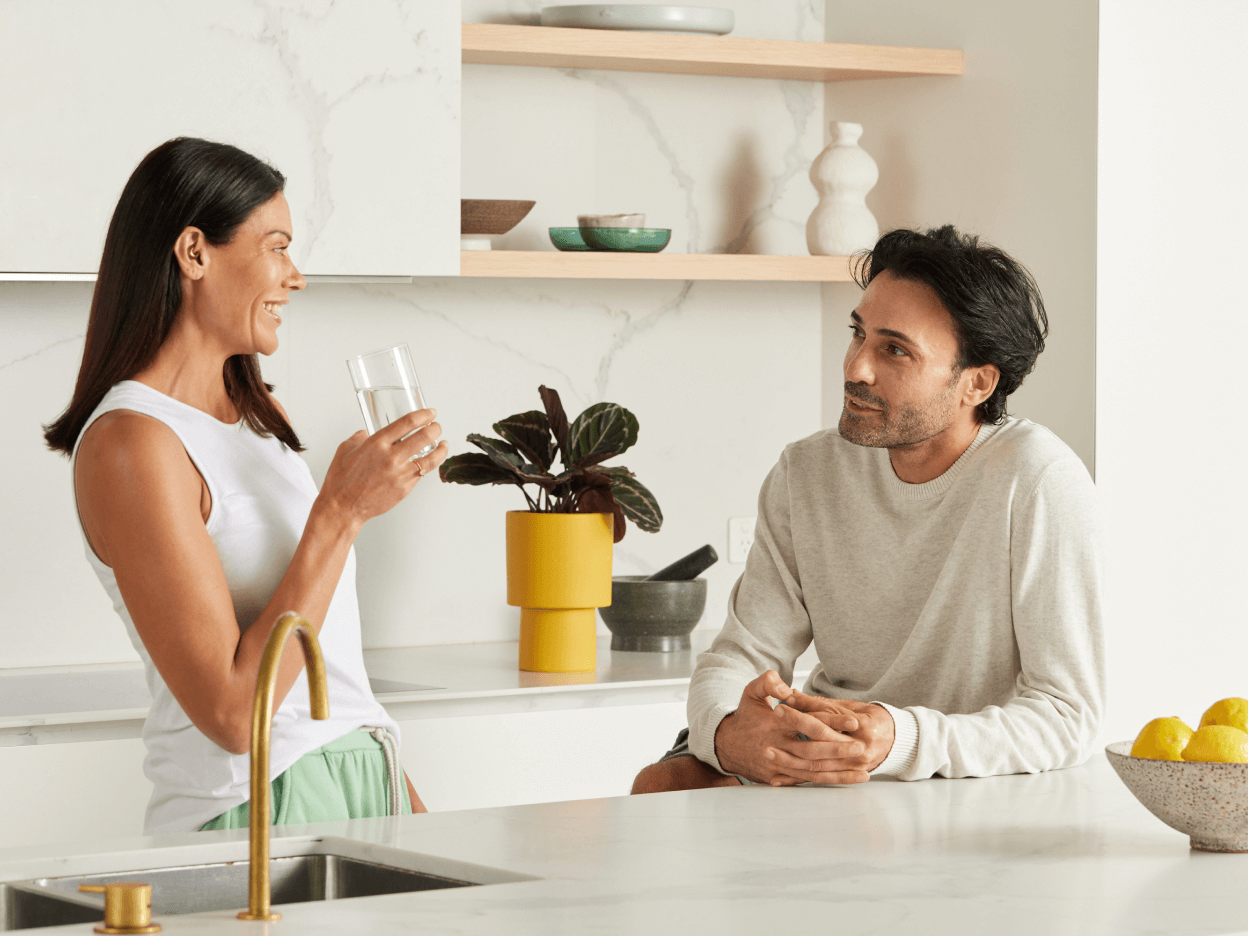What is anxiety?
Anxiety is a natural reaction to stress. Our body utilises anxiety to keep us alert to potential environmental or situational dangers, ostensibly priming our fight-or-flight responses.
In contrast to normal feelings of nervousness or anxiety, however, anxiety disorders involve excessive fear or anxiety.[1] There are several types of anxiety disorders, and they affect one in six Australians in their lifetime.[2]
When people have anxiety disorders, they avoid situations that trigger or worsen their symptoms. It can affect job performance, school work, and relationships negatively, which also contributes to their already-existing anxiety, thereby perpetuating a cycle of stress.
Feelings of anxiety vs anxiety disorders
Generally, an anxiety disorder is diagnosed when a person’s fear or anxiety outweighs the situation, is age-inappropriate or disproportionate to their current situation, or hinders their productive functioning in daily life.[3]
The good news is that anxiety disorders such as social anxiety can be managed or treated. Medicine and research have progressed in such a way that medical professionals, like our doctors here at Mosh, can provide medically-backed guidance on managing anxiety.
Types of anxiety disorders
There are several types of anxiety disorders, which are clinically diagnosed and can require extensive rehabilitative treatments depending on the severity of a patient’s symptoms.
Among the recognised types of anxiety are generalised anxiety disorder, social anxiety disorder, and separation anxiety disorder. Panic disorder, post-traumatic stress disorder (PTSD), and specific phobias are also categorised under anxiety disorders.[4]
What activities can I do to help with anxiety?
Both physically and mentally stimulating activities have been recognised to have a positive impact in relieving symptoms of anxiety in most adults.[5] With this in mind, here are a few activities you can try at home on how to manage anxiety:[6]
- Staying active by walking or jogging
- Doing breathing exercises
- Performing Progressive muscle relaxation (PMR) which helps reduce the feelings of muscle tension that often comes with anxiety
- Dedicating a specific time to worry
- Lessening stressful triggers within personal or private spaces
- Practising healthier eating and sleeping habits
When it comes to anxiety management, lifestyle changes often go hand-in-hand in treating its symptoms, while prescription medication for anxiety aids in addressing types of anxiety that have progressed towards intrusive or disruptive effects in a person’s daily life.
If you feel that you need medication to help you keep your anxiety at bay, get in touch with us at Mosh regarding taking a depression and anxiety test. From there, we’ll connect you with a doctor best suited to help you in managing your anxiety.
What are some natural ways of reducing anxiety symptoms?
There are several effective therapies currently in practice for how to manage anxiety, ranging from cognitive behaviour therapy (CBT)[7] to psychotherapy and interpersonal therapy. Prescription medicines and herbal treatments[8] are also available, though consultation with your doctor is encouraged for these.
To this end, Mosh doctors are happy to guide and assist you with stress management in several ways. Fill out our brief questionnaire so that we can assess your situation, and if expert counselling or treatment is necessary, our team will match you with a doctor experienced in advising on types of anxiety.
Consultations with Mosh doctors are done via audio call, video call, or text messaging at the patient’s preference and convenience.
Is it possible to manage anxiety without medication?
You’ll be glad to know that the answer is yes; there are ways how to manage anxiety independently of medication.
Psychotherapy, also known colloquially in some regions as talk therapy, is a field of medicine that approaches mental health disorders like anxiety with non-pharmaceutical treatments.[9] It can also assist with prescription treatments through modular counselling, which is a treatment model of independent and flexible therapy elements within a systematic treatment algorithm.
Through psychotherapy, for example, a person can gain emotional awareness and insight that leads to a change in attitude and behaviour. Often, the therapist can help the patient identify the causes or triggers of their anxiety within a safe space or environment and suggest solutions.
In most cases, what helps with anxiety also allows people to lead normal, productive lives. However, some folks may find their anxiety to be debilitating or extremely disruptive. With this in mind, it’s important to take care of our mental health – but this is easier said than done when we have no idea where to begin.
To this end, Mosh will help you connect with an Australian Health Practitioner Regulation Agency (AHPRA) registered doctor regarding how to manage anxiety, should your anxiety require expert medical guidance. Our doctors can also guide you holistically, such as through one-on-one counselling.
When it comes to treating or controlling anxiety, it’s important to maintain or continue treatment under a medical professional’s guidance, to lessen the risks of anxiety progressing further into a worse condition.[10] This applies to non-clinically diagnosed feelings of anxiety as well, as the ongoing research into what causes anxiety among various demographics is not yet definitive.[11]
We should always do our best to make our mental health a priority. After all, if the mind is not at its best, then the body suffers along with it. We at Mosh believe in a sound mind balancing with a sound body, and we want to help you find the help that you need.
Speak with a Mosh doctor about how to manage anxiety today.

